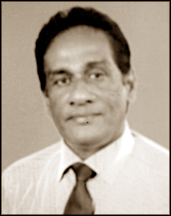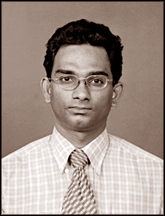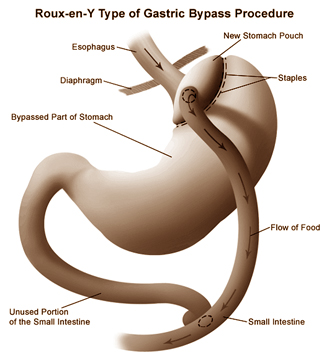
Obesity- a disease to reckon with
by Ananda Kannangara
 |
 |
| Dr.N.W.J.K. Nanayakkara |
Dr. Usan Dalpadadu |
Although obesity is recognised as one of the most prevalent diseases
in the world, Sri Lankans do not take care of it, perhaps due to lack of
awareness. If no proper treatment is given for those who are suffering
from obesity, it is a proven fact that they would have short life
expectancy. - Dr. N.W.J.K. Nanayakkara
Obesity has become a common disease among many Sri Lankans. According
to statistics given by the World Health Organisation (WHO) 1/4th of the
world population are presently suffering from obesity.
If a person does not have the standard weight according to his height
there will be chances for him/her developing obesity. When a person has
excessive weight he will have ‘raised’ blood pressure, diabetes,
increased cholesterol in their blood, arthritis, psychological upsets
and sleep apnoea (developing breathing difficulties in sleep).
Sri Lankan doctors say that undergoing the Bariatric surgery,
commonly known as weight losing surgery is the best remedy to cure
Morbid Obesity.
In an exclusive interview with the Gastro Intestinal Surgeon in the
Kalubowila Teaching Hospital, Dr. N.W.J.K. Nanayakkara, he said that
undergoing the Gastric bypass surgery is the acceptable first line
treatment for the Morbidly Obese.
It is said that available facilities in our hospitals for patients
who are suffering from obesity should be improved, so that early deaths
could be avoided to a greater extent.
 He said unlike in Sri Lanka, the accepted standard treatment is given
for patients who are suffering from obesity in many other countries. In
the USA alone around 300,000 surgeries are performed annually. He said unlike in Sri Lanka, the accepted standard treatment is given
for patients who are suffering from obesity in many other countries. In
the USA alone around 300,000 surgeries are performed annually.
A recent WHO report indicated that smoking, which was earlier
recognised as the number one avoidable killer has become second to
obesity. According to statistics a large number of patients in the world
die due to complications of obesity.
The College of Surgeons of Sri Lanka at its latest sessions revealed
that 1/4th Sri Lankans are also suffering from obesity and majority of
them do not seek proper treatment due to lack of awareness.
It is said that the importance of surgical treatment must be given
pride of place by the health authorities as it largely benefits people
in the country.
Asked whether the diseases could be overcome with medicines other
than undergoing the Bariatric surgery, Dr. Nanayakkara said it depends
on the extent of the severity of the obesity.
If the BMI (Body Mass Index) is below 35, the patients could attempt
regular exercises, dieting and medicine.
Senior Registrar, GI Unit, Kalubowila Teaching Hospital, Dr. Usan
Dalpadadu said particularly females who are suffering from Obesity are
more likely to develop breast cancer, bowel and womb cancers and advised
such patients to have regular medical checkups.
Dr. Nanayakkara also said the normal BMI of a person is between 18 to
26 and advised patients whose BMI is above this limit to seek treatment.
However, if it is above 40, the standard and acceptable treatment
worldwide is the Bariatric surgery (Gastric bypass surgery) and
therefore patients should check their BMI (Weight in kilograms divided
by height in metres) regularly.
If a patient needs surgery he/she could first consult a doctor in the
clinic at the Kalubowila Teaching Hospital, the only hospital at present
performing the Bariatric surgery in Sri Lanka and seek registration
according to advice.
Since some instruments that are required for surgical procedures are
not available at times in the hospital (particularly the most expensive
stapling gun), patients may have to purchase it outside before the
surgery.
If such a surgery is done in a private hospital in Sri Lanka it costs
nearly Rs. 400,000 and the same surgery costs around Rs. one million in
the Western world including in America where a large number of patients
are reported undergoing surgeries for obesity.
Dr. Nanayakkara finally said that any surgical procedure, though it
is very rare, death is one of the complications and according to
available statistics 0.3 per cent of the patients who undergo gastric
bypass surgery may have the possibilities of mortality.
Gastric bypass surgery
Gastric bypass procedures (GBP) are any of a group of similar
operation sused to treat morbid obesity—the severe accumulation of
excess weight as fatty tissue—and the health problems (comorbidities) it
causes. Bariatric surgery is the term encompassing all of the surgical
treatments for morbid obesity, not just gastric bypasses, which make up
only one class of such operations.
A gastric bypass first divides the stomach into a small upper pouch
and a much larger, lower "remnant" pouch and then re-arranges the small
intestine to allow both pouches to stay connected to it.
Surgeons have developed several different ways to reconnect the
intestine, thus leading to several different GBP names. Any GBP leads to
a marked reduction in the functional volume of the stomach, accompanied
by an altered physiological and psychological response to food.
The resulting weight loss, typically dramatic, markedly reduces
comorbidities. The long-term mortality rate of gastric bypass patients
has been shown to be reduced by up to 40%; however, complications are
common and surgery-related death occurs within one month in 2% of
patients.
- Wikipedia
Depression significantly impacts survival rates among cancer
patients
by Drucilla Dyess
Depression is a medical illness involving both the mind and body, and
is known to be one of the most common health conditions worldwide.
 Anyone can suffer from depression. In fact, clinical depression
affects about 19 million Americans each year, and is estimated to play a
role in half of all suicides. People who suffer from depression often
feel that their lives aren’t worth living anymore. Anyone can suffer from depression. In fact, clinical depression
affects about 19 million Americans each year, and is estimated to play a
role in half of all suicides. People who suffer from depression often
feel that their lives aren’t worth living anymore.
Couple feelings of worthlessness with facing a battle for your life
against cancer, and the likelihood of survival could be significantly
diminished.
British Columbia graduate student Jillian Satin and colleagues
gathered data from previous studies concerning the effects of depression
on health among cancer patients.
Regarding the findings of the analysis, Satin said, “We found an
increased risk of death in patients who report more depressive symptoms
than others and also in patients who have been diagnosed with a
depressive disorder compared to patients who have not.”
In all, a total of 26 studies involving 9,417 patients were found to
meet the research criteria. These studies focused on a range of survival
times, from one to ten years.
The findings of the analysis revealed that death rates were up to 25
per cent higher for patients who experienced depressive symptoms, and up
to 39 per cent higher among patients diagnosed with major or minor
depression.
The study was recently published in the journal Cancer. The research
team considered whether people become depressed because they are sick
with cancer, or whether cancer claims lives more often when patients
suffer from depression independent of the cancer. Satin acknowledged,
“That’s the million-dollar question.” She then added, “Even after
correcting for that, we still see the positive relationship between
depression predicting mortality.”
Satin remarked that the results prove the link is significant.
She noted, “In both of those groups, you can predict cancer
mortality.” The findings raise questions about the need to screen cancer
patients for signs of psychological distress. Satin explained, “I think
depression should always be taken seriously.
It would be my wish that this line of research fuels adding
psychological social treatment into standard cancer care.”
Although there is still no there is no firm proof that depression
actually causes cancer patients to die prematurely, the possibility does
exist that depression may affect hormones or the immune system.
In addition, patients who suffer from depression may become less
compliant with treatment, which could impact life expectancy.
The researchers did point out that the risk of death associated with
depression in cancer patients is small.
Therefore, patients need not feel that maintaining a positive
attitude to beat their disease is necessary for their survival.
The team agrees that more research is needed to confirm the results
of their analysis, as well as to determine whether depression has a
greater impact on death rates among patients with specific types of
cancer in comparison to various other cancers.
Early warning of a diabetic tsunami
by Edward Arambewala
World Diabetic Foundation’s Managing Director Dr. Anil Kapur last
week credited Healthcare and Nutrition Minister Nimal Siripala de Silva
for his far sighted vision in health matters, for giving a timely
warning to be ready for a major outbreak of diabetes like a tsunami in
this part of the world in the coming years, unless action is taken to
give priority to control the disease now.
 Dr. Kapur recalled this warning given by the Minister a few years ago
at a medical conference when the tsunami struck several parts of the
country causing heavy damage to life and property. Dr. Kapur recalled this warning given by the Minister a few years ago
at a medical conference when the tsunami struck several parts of the
country causing heavy damage to life and property.
Dr. Kapur was speaking at the inauguration of Nirogi Lanka project of
the Sri Lanka Medical Association held at the Lionel Memorial auditorium
of the SLMA on Thursday September 3rd. The project was inaugurated by
the Minister and Dr. Kapur was the guest of honour.
Dr. Kapur said that he too attended that tsunami conference and took
the warning given by the minister seriously to give priority for
diabetic prevention.
The Nirogi Lanka project is an outcome of that warning, as it is
being funded by the World Diabetic Foundation. It has given this four
year project US $ 625,000.
Dr. Kapur said he liked Sri Lanka and her people. Among the good
friends he had here the Health Minister was one.
Minister Nimal Siripala de Silva inaugurating the project thanked Dr.
Anil Kapur for the interest he took to help Sri Lanka in this project.
He said the Ministry could have easily taken this project for itself,
and handled it.
But he thought otherwise. He thought of trying something new in
healthcare here. He wanted to try competitiveness here in healthcare
between the Ministry and the SLMA. He thought he would give this over to
the SLMA, and see how it will work. He knew innovativeness comes in
competition with the SLMA’s medical brains at work. With Prof. Chandrika
Wijeratne of the Diabetic Prevention Task Force Coordinating the
project. There is no doubt about its success.
While thanking the World Diabetic Foundation for the grant given the
Minister said that we must not expect always for foreign funding, we
must think of ways to do things on our own where possible. The media has
a big role to play in health education as much as the doctors. Media
knows the way how a message has to be carried to the people attractively
and interestingly. This is very important in changing lifestyle of the
people.
He was sure that the SLMA would get the fullest cooperation from the
media for the Nirogi Lanka project. SLMA President Prof. Rezvi Sheriff
welcoming the guests at the event said.
This is one of the largest health projects that the SLMA will be
handling, with Prof. Chandrika Wijeratne as the primary mover. With her
dedication to the cause, its success is assured. Prof. Ravindra Fernando
Chairperson SLMA NCD committee said that this project would be handled
by the SLMA Diabetic Task Force in conjunction with the Ministry of
Health. Major part of the programme would be educating the public on
diabetes, and how to deal with it, the correct way. He also thanked the
World Diabetic Foundation for funding the project.
Sunday Observer associated survey on centenarians in Sri Lanka
by Edward Arambewala
The recently formed Sri Lanka Association for the Welfare and Health
Study of Centenarians headed by Prof. Colvin Gooneratne would like to
hear from families living in the Colombo district first who have
Centenarians still living with them, to be included in this survey and
study.
Please write to the Association President Prof. Gooneratne, with a
copy to the Association Secretary Senior Journalist Edward Arambewala
giving a brief account of the centenarian - Name; Age; Health condition;
occupation done etc. with a photograph.
The Association would be visiting the Centenarian by appointment for
a health status, study and interview with the family.
The Colombo district study will be done in association with the
Sunday Observer.
A weekly article on the Centenarians will be carried in the Sunday
Observer with pictures.
Centenarian families who wish to join the Association and others who
wish to help in this study and help the needy Centenarians could also
please write to us.
Address:- Prof. Colvin Gooneratne, President SLAWC, No. 117/3A,
Koswatta Road, Nawala.
Address of Secretary:- Edward Arambewala, Secretary SLAWC, B2 1/10,
De Soysa Flats, Moratuwa. |

